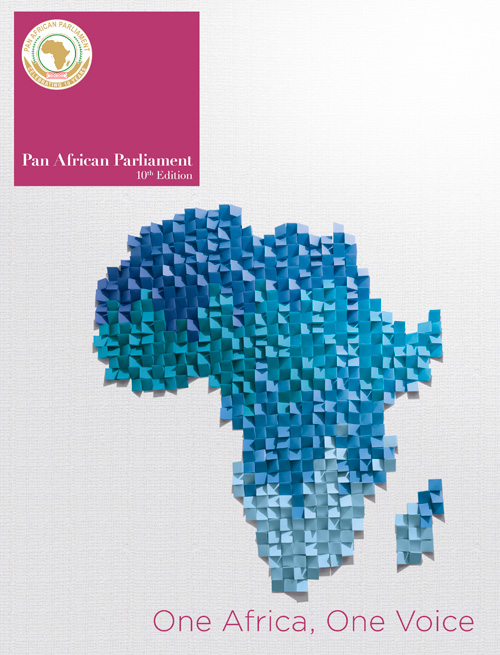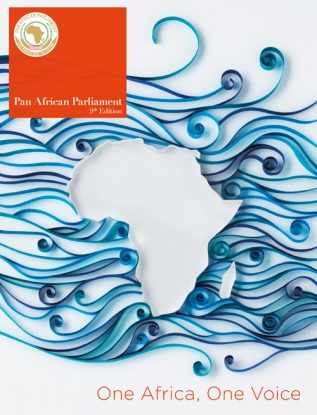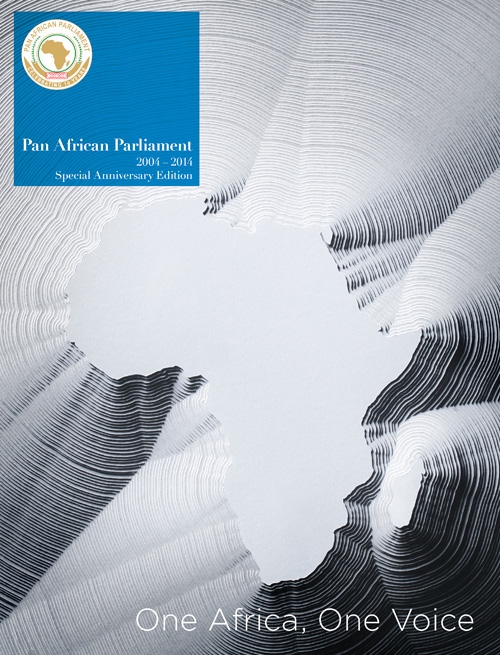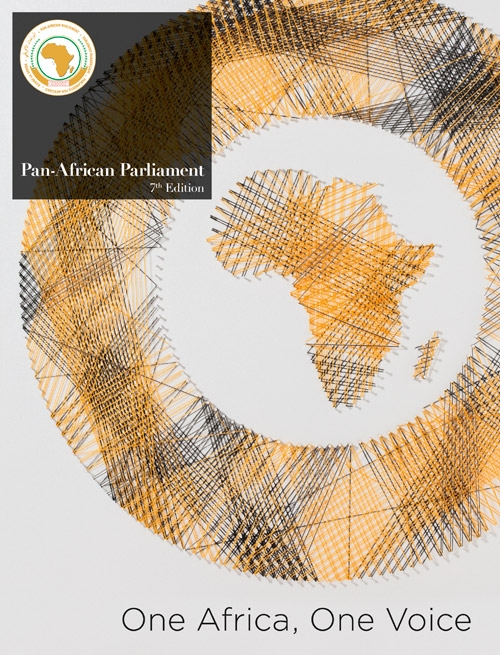
In October 2010, the Committee on Rural Economy, Agriculture, Natural Resources and Environment presented an activity report to the PAP that covered the period from April–October.
The report stated that the Committee’s activities were curtailed by a lack of funds. As a result the Committee only held one non-statutory and two statutory meetings during this period.
To improve their work and highlight pertinent problems plaguing the Committee, members set up two sub-committees – one tasked with tackling matters relating to rural economy and agriculture, and the other focusing on natural resources and the environment.
During their meetings, the Committee heard two presentations on the themes of the Millennium Development Goals (MDGs) and water-related issues. It also raised and debated problems relating to the effectiveness and efficiency of the Committee.
Yeo Dossina, head of statistics at the Department of Economic Affairs at the AU, made a presentation to the Committee about the 2010 progress report on the MDGs achievements in Africa.
Dossina highlighted the difficulties related to the collection and availability of data in Africa and appealed for the establishment of an African statistics system. He also underscored the importance of the ratification of the African Charter on Statistics.
The Committee recommended that the PAP launch a campaign in order to intensify rural economic development
The Committee reviewed a report on water-related issues and WaterAid projects in Africa. WaterAid is a global NGO that facilitates access to potable water, hygiene as well as sanitation. The NGO’s Head of Region for East Africa, Lydia Zigomo, delivered a presentation on water-related challenges and issues and the role her organisation plays.
Her report indicated that reforms carried out by several governments showed their desire to confront these problems. These programmes were being undermined by corruption, a shortage of qualified staff and a lack of resources and access to technology. The Chairperson and Vice-Chairperson of the Committee attended the 13th Session of the African Ministerial Conference on the Environment (AMCE), held from 22–23 June 2010 in Bamako, Mali.
The aim of the conference was to share regional and global expertise on climate change. The meeting culminated in the Bamako Declaration, which emphasised the need for Africa to consolidate its position on climate change.
During their meetings, the Committee recommended that the PAP launch a campaign in order to intensify rural economic development in Africa , which will incorporate all existing programmes.
The Committee invited Carin Smaller, Advisor to the International Institute for Sustainable Development, to brief its Members on land transactions in Africa.
Smaller said there were positive factors to consider with land transactions as it creates jobs, improves infrastructure and increases agricultural productivity. However, she noted that many new investors focus on least-stable countries and/or those that have often lacked adequate legislation, which resulted in social risks such as loss of access to land for the local farmers, vulnerability of women and displacement of people. She quoted a World Bank report that said 45 million hectares (ha) of land was transacted in 2009. In 2005 it was 4 million ha. Based on land and the implications for food security and peace, the Committee recommended that the equivalent of AMCE and the African Ministers’ Council on Water be set up by African ministers in charge of land.
2011 SESSION
The Committee on Rural Economy, Agriculture, Natural Resources and Environment held three statutory meetings for the period covering October 2010–September 2011.
The Committee again noted that their activities were curtailed by a lack of funds. However, in performing their duties, Members attended a World Bank training programme on aid effectiveness and a preparatory meeting for the parliamentary process of the World Water Forum in Strasbourg, France.
Committee Members also actively participated in the following events:
- Making Investment Work for Africa, a Parliamentarians Response to Land Grab, 21–22 July 2011 in Midrand, South Africa.
- Climate Change Capacity Building, 25–27 July, Johannesburg, South Africa.
- Information session on the Nagoya Protocol on 28 July, in Johannesburg, South Africa.
- Preparatory meeting of the African Group of Negotiators, 6–10 August 2011, in Durban, South Africa.
- Special session of AMCEN, 12–16 September 2011, Bamako, Mali.
2012 SESSION
The Committee on Rural Economy, Agriculture, Natural Resources and Environment submitted an activity report to the PAP, covering the period from March–August.
The report focused primarily on the Committee’s participation in a preparatory meeting for the 6th World Water Forum, the PAP members’ part in forum, the UN Conference on Sustainable Development and the PAP workshop: Taking Stock of COP 17, Rio+20 and Future Strategies for Africa.
Water is abundant, covering over 70% of the earth’s surface. However, only 3% of the Earth’s water is fresh and less than 1% of the fresh water is readily accessible for direct human use. It is estimated that more than 300 million people in Africa still lack access to safe drinking water. The resource is thus one of the principal indicators in the development of societies. Water plays a critical role in achieving sustainable development, poverty alleviation, peace and security especially in Africa which is becoming increasingly arid.
Every three years, the World Water Council organises a platform called the World Water Forum, which is the main global water-issues event. It offers to politicians and decision-makers an international platform for learning and sharing experiences as well as debating water-related challenges.
To prepare for the World Water Forum, the Committee took part in a PAP seminar held with the Nepad through the Comprehensive Africa Agriculture Development Programme (CAADP), the Association of European Parliamentarians with Africa (AWEPA) and the African Capacity Building Foundation (ACBF).
Entitled Pan African Parliament Preparatory meeting for the 6th World Water Forum, under the theme: Water and Sustainable Development: How does Africa Manage its Natural Resources?, the seminar explored best practice in policies, institutional development, governance and empowerment of local communities in expanding availability and accessibility to safe water and water-related challenges in Africa.
The forum took place in Marseille, France, from 12–18 March 2012, themed: Time for Solutions. It was attended by 25 000 participants from 180 countries. The week of discussions, debates and presentations on solutions and best practice consisted of over 250 sessions and panels and about 100 grassroots and citizenship events.
Only 3% of the Earth’s water is fresh and less than 1% of the fresh water is readily accessible for direct human use
The African regional process for forum was built on the outputs of the 5th World Water Forum and on the 2nd and 3rd Africa Water Week, the roadmap for implementation of the Sharm el-Sheikh Commitment, and the Africa Water Vision 2025. The process aimed to get various continental regions to reach commitments and solutions for identified targets.
It is important to acknowledge the shared vision articulated in the Africa Water Vision that calls for ‘an Africa where there is an equitable and sustainable use and management of water resources for poverty alleviation, socio-economic development, regional co-operation, and the environment’.
The African Common Position includes the following goals and initiatives:
- Develop and implement sanitation and water plans to bring back on track the neglected areas including post-conflict countries, informal settlements and slums, rural communities and small towns by 2015.
- Develop youth and water strategy by 2012.
- African Ministers’ Council on Water Gender Strategy implemented in all countries by 2015.
- Integrate water security and climate resilience into national development plans and enhance the continent’s water sector representation in the negotiation on climate change starting with COP 18, to ensure access to incremental funding by 2015.
The Committee also took part in the UN Conference on Sustainable Development – Rio+20. Considering the link between environment and sustainable development, the Bureau of the Committee revisited the key outcomes of two major environmental conferences, that is, the 17th Conference of the UN Framework Convention on Climate Change (UNFCCC COP17) as well as the Rio+20 UN Conference on Sustainable Development, along with a PAP workshop entitled: Taking Stock of COP 17, Rio+20 and future strategies for Africa.
The Committee’s activities were made possible by the support of Nepad through CAADP, AWEPA, the French National Assembly, the World Water Council, the ACBF, and Heinrich Böll Stiftung.
It extended special gratitude to Hon Buyelwa Sonjica (South Africa’s former Minister of Water and Environmental Affairs) who actively participated in a fruitful dialogue with members of the PAP.
2012 SEMINAR REPORT
In October 2012, the Committee on Rural Economy, Agriculture Natural Resources and Environment prepared a report entitled: Making Agricultural Investment Work: A Parliamentarian Response to Land Rush.
Africa’s population represents 12% of the world’s population, yet contributes only 1% of the global GDP and 2% of world trade. More than 70% of people in Africa live in rural areas and depend on agriculture for their livelihood.
In 2009, a World Bank report posited that global food production needed to double by 2050 and that the world should turn to Africa in order to satisfy its energy needs.
In the last decade, 50 million hectares (ha) of African land has been sold or leased on long-term contracts, 5% of which was agricultural land. This new wave of investments are known as ‘land grabs’. Africa has been a target because of the presumed abundance of agricultural land and water resources and governments who fail to protect land users.
These land grabs have not been regulated nor have they benefitted local populations in terms of employment or well-being. In fact, it has compromised the rights of citizens – in particular women – who have been deprived of their livelihoods and displaced from their territories.
To draw awareness to this issue, the Committee on Rural Economy, Agriculture, Natural Resources and Environment, in collaboration with the International Institute for Sustainable Development, created a Consultative Committee that aimed to provide leadership, training and expertise during regional seminars and assist with obtaining necessary financial resources.
In the last decade, 50 million hectares of African land has been sold or leased on long-term contracts
Furthermore, the PAP, in collaboration with the West African Economic and Monetary Union (WAEMU) and the National Assembly of Benin, organised a two-day seminar for parliamentarians from West Africa. The objective of the seminar was to create an action plan for the region to ensure that foreign investment yielded dividends and strengthened the position of locals.
Once completed, the action plan’s major focuses included the following:
- Ensuring transparency and access to information on all foreign direct investment projects.
- Establishing public campaigns that involved consultation with local communities.
- Creating new, improved laws to ensure that all related multi-sectoral regulations were adhered to.
At the end of the seminar a declaration was created in which the parliamentarians called upon the AU, WAEMU and ECOWAS members to implement reforms in their countries. They were also called upon to support the recommended reforms so that Africa, her people and future can be protected. It was also suggested that an African Ministerial Conference on land investments be established.
Finally, all parliamentarians committed to organise platforms and regional conferences to raise awareness of land grabs.
They agreed to support African initiatives at all levels to improve the systems of land governance and foreign investment and to review existing laws. New national laws on direct foreign and local investment on water and agricultural land would also be introduced.







